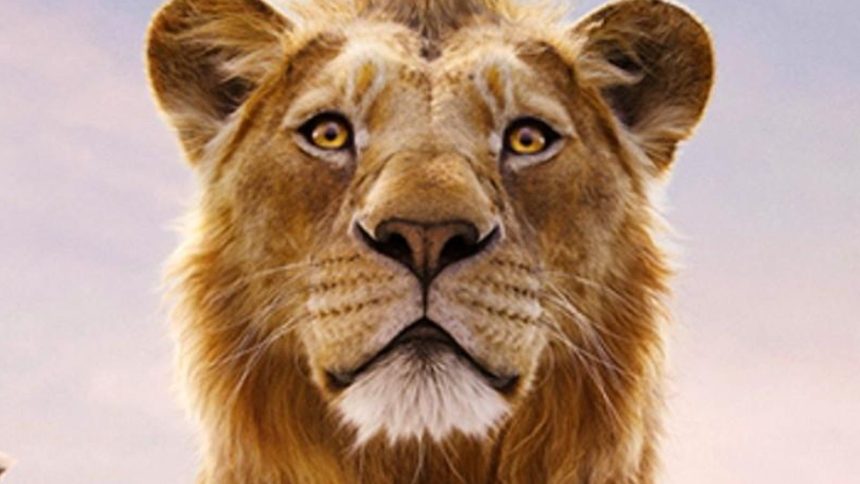James Earl Jones, the iconic voice of Mufasa in Disney’s The Lion King, passed away in 2022, leaving a significant void in the beloved franchise. His resonant baritone had become synonymous with the wise and noble lion king, a performance etched into the hearts of generations. While Jones’ final portrayal of Mufasa was in the 2019 live-action remake, his legacy extended beyond that, encompassing the original 1994 animated classic and the 1998 sequel, The Lion King II: Simba’s Pride. Even before his passing, Jones ensured the continuation of his iconic voice work as Darth Vader in the Star Wars franchise, granting permission for the use of AI technology to recreate his voice. This forward-thinking approach underscored his dedication to preserving his artistic contributions for future audiences. However, the question remained: how would the Lion King franchise move forward without its iconic king?
Disney’s answer arrived in the form of Mufasa: The Lion King, a prequel exploring the younger years of the regal lion. Rather than attempt to replace Jones, the studio wisely chose to recast the role with Aaron Pierre, framing the film as a look into Mufasa’s formative years. This strategic decision allowed the franchise to honor Jones’ legacy while simultaneously introducing a new interpretation of the character. The film opens with a poignant tribute to Jones, acknowledging his irreplaceable contribution to the Lion King universe. This respectful gesture sets the stage for a new chapter, one that both builds upon the established narrative and carves its own unique path.
Mufasa: The Lion King delves into the untold story of the young Mufasa, revealing his journey from a lost and lonely cub to the wise and respected leader audiences know and love. The film explores his fateful encounter with Taka, later known as Scar, and the events that shaped their complex relationship. Told through the familiar voice of Rafiki, the narrative unveils the origins of the brothers’ intertwined destinies and the seeds of their tragic conflict. The film employs a blend of live-action and CG animation, mirroring the visual style of the 2019 remake, creating a seamless transition between the established aesthetics and the new narrative. This blended approach provides a visually stunning backdrop for the unfolding story of Mufasa’s rise to prominence.
The film showcases two versions of Mufasa: the vulnerable cub, voiced by Braelyn Rankins, and the adolescent lion, voiced by Aaron Pierre. This dual portrayal allows for a nuanced exploration of character development, tracing the evolution of Mufasa from a lost and uncertain cub to a confident young leader. Alongside Pierre’s portrayal of the adolescent Mufasa, Kelvin Harrison Jr. voices the young Taka, offering a glimpse into the formative years of the future antagonist. This parallel development allows the audience to witness the diverging paths of the two brothers, highlighting the choices and circumstances that ultimately shape their opposing destinies. The film’s logline emphasizes the theme of destiny, highlighting the journey of a group of misfits searching for their place in the world, a narrative thread that resonates with the broader Lion King themes of family, responsibility, and finding one’s place in the circle of life.
Aaron Pierre, known for his work in Barry Jenkins’ The Underground Railroad and his portrayal of Malcolm X in National Geographic’s Genius, approached the role of Mufasa with a deep sense of respect and admiration for James Earl Jones. He acknowledged Jones as an inspiration, not just for this specific role, but for his entire career. Despite the pressure of stepping into such iconic shoes, Pierre embraced the challenge, viewing his nerves as a testament to the weight of the character and the legacy he was inheriting. He saw his role as an opportunity to depict Mufasa in a new light, showcasing his vulnerability and the journey he undertook to become the revered king. This approach allows Pierre to offer a fresh perspective on a beloved character, honoring the original while adding his own unique interpretation.
Pierre’s Mufasa is not a fully formed king, but a young lion still finding his footing, grappling with the responsibilities that lie ahead. He described the character as “wearing shoes that are two or three sizes too big,” a poignant metaphor for the challenges of leadership and the process of growing into one’s destiny. This depiction of Mufasa allows the audience to connect with him on a more personal level, witnessing his struggles and triumphs as he navigates the complexities of leadership and the burdens of responsibility. Mufasa: The Lion King offers a unique opportunity to delve deeper into the rich mythology of the Lion King universe, exploring the origins of its iconic characters and adding layers of depth to their established narratives. It’s a testament to the enduring power of storytelling and the ability of a beloved franchise to evolve and expand, even in the face of significant loss.



